Rising costs and a fiercely competitive market have put the skids on wholesalers’ profits over the past 12 months but there are signs that some parts of the industry are regaining traction. Peter Cripps reports
The wheels of change are turning in wholesale. Food and fuel price inflation combined with inevitable price pressure, as a result of the recession, has put the squeeze on margins. Our survey of The Big 30 wholesalers shows that, while sales are up 5.8%, pre-tax profits fell by 4.3%.
As wholesalers emerge from 2009 they will be looking for ways to claw back lost profits, but it won’t be easy. Retailers, restaurants and customers alike will be looking to cut costs, with early signs suggesting the war against overheads will be most keenly fought on the road.
Foodservice has suffered the effects of the recession more than most, as consumers opt to dine in rather than visit pubs or restaurants. Volumes dropped by 10.4% in 2009, according to Rabobank, and insiders are not expecting them to pick up much in the next year.
Even for those with cast-iron catering contracts, the pressure is intense. As well as cost increases being resisted by customers, more players are looking to muscle in on the market. JJ Food Service, DBC Foodservice, Bestway and Booker are all treading on the toes of Brakes and 3663, employing some aggressive tactics in the process.
“Some of the contracts are being won at incredibly low prices, which leads me to suspect the companies winning them can’t be making any money on them at all,” says DBC CEO Andrew Ramsden.
The squeeze on the public sector expected after the general election could make matters even worse. The so-called ‘cost sector’ of foodservice public-sector catering, contracts and workplace catering has so far been largely resilient to the downturn. But for how long?
In addition, foodservice giants are seeing logistics specialists moving in on their turf. In June, DHL will take over the Burger King contract from 3663. Does it herald a sustained assault on foodservice? DHL has made no secret of its desire to move into this space: after winning a recent British Airways contract, it declared that “80% of the value of foodservice is logistics”.
And last month, major logistics player Wincanton announced it will spend £3m building a 110,000sq ft multi-temperature foodservice distribution centre in Trafford, Manchester.
“This site is just the beginning of a transformation programme designed to elevate Wincanton to the supply chain partner of choice for the foodservice industry,” says Wincanton foodservice managing director David Jones.
With several multimillion pound contracts including the giant Compass Group coming up for renewal in the next two years, the logistics operators have plenty to play for.
There is even speculation that, as supply chain chiefs come under increasing pressure to find savings, caterers could take control of their own distribution networks. JD Wetherspoon led the way, hiring DHL to design it a network of distribution centres in 2004, although it still uses Brakes for some services.
Booker CEO Charles Wilson believes moves to cut out the middleman are inevitable. “Unless wholesalers can offer added value, the process of disintermediation will continue. Business will go straight to the wheels.”
With diesel prices fluctuating, and balance sheets already tested, it’s been particularly challenging for the foodservice giants. With profits only covering interest charges, in many cases, it has been necessary to pass on the extra fuel costs. Such a situation cannot have gone down well.
As well as foodservice, the delivered side is also under pressure. Speculation has long since surrounded Palmer & Harvey’s tobacco supply contracts with the major multiples, and though it insists it remains highly effective in terms of cost and security, industry insiders expect the Somerfield business to be taken in-house by the retailer’s new owner, The Co-operative Group, which has its own supply chain.
But P&H is not alone in facing a challenge in the delivered space. With high fixed costs, the fluctuating price of diesel and the burden of recent investment to improve fresh delivery services, the customer’s clamour to reduce costs is making it increasingly difficult to make money. Of the eight specialist delivered wholesalers, five saw profits fall, two declined to provide details of their profits, leaving only DCS as the exception.
“We don’t push delivered very hard because it costs us more money,” says Bestway MD Younus Sheikh. “Customers want goods delivered at cash & carry prices. We only charge a nominal delivery fee.”
The cost of the Congestion Charge led Dhamecha to call time on its delivered wholesaling operation in 2008. It proved a wise decision. With a cash pile of £20.6m in its last set of accounts, it was able to buy its sixth depot in London in November.
IGD senior business analyst Patrick Mitchell-Fox believes there is still a future for delivered. “The growth of delivered was slowed in the recession, but long-term it will continue to grow,” he says.
Delivered works particularly well for national companies that aren’t big enough to take on their own sourcing and distribution. This is demonstrated by the success of Booker Direct. New business wins include NAAFI, Nicolas, Picture House Cinemas, Storm Cinemas, HMV and English Heritage, as well as the national rollout of Marks & Spencer.
Another exception to the rule has been the outstanding growth of Henderson it was the only Spar wholesaler to increase profits but this is the result of a booming retail scene in Northern Ireland (owing to the fall of the pound against the euro, and its proximity to Ireland).
Conversely, the devaluation of sterling has had a significant impact on specialist ethnic wholesalers such as Wing Yip and East End Foods, as they struggle to pass costs on to customers who are seeking the best value.
“We have seen a 20% increase in cost prices as a result of foreign exchange rates and increasing utility costs over the past year,” says Wing Yip director Brian Yip. This year more than one percentage point has been shaved off Wing Yip’s pre-tax profit margin which, at 7%, was the highest in the 2009 Big 30 report.
In the meantime, specialist cash & carry wholesalers have been making hay relatively speaking, at least. Costco, Dhamecha, Parfetts, HT & Co, Crown Crest and Eastenders all increased profits. In the same way consumers made use of local stores in the recession, cash & carries have thrived because they allow smaller retailers and caterers, whose cashflows are under pressure, to top-up shop little and often.
The only significant exception was Metro-owned cash & carry Makro, whose pre-tax losses grew from £19.4m to £26.8m in the year ending December 2008. The company has since sold three of its worst-performing depots in a move it hopes will help it return to profit in the near future. But such a move didn’t stop Bestway’s normally diplomatic Sheikh suggesting it’s time Makro parent company Metro Group threw in the towel in the UK.
The big picture in wholesale is also skewed by the jaw-dropping fall in pre-tax profits at Palmer & Harvey, which fell from £20.3m to just £0.5m in the year ending April 2009. Finance director Jonathan Moxon claims this does not accurately reflect the company’s strong operating performance, however.
“The reason for the drop in profits is the MBO, which was valued at £298.8m, and half of that was financed by bank debt,” he says. “We had £22m of interest costs, compared with £3m the previous year.”
Stripping out depreciation and amortisation charges (mostly relating to the MBO) is a far better indicator of the company’s trading performance, claims Moxon, although this too was down from £48m the previous year to £42m. At least P&H has paid down £68.1m of its debt in the past year, which should help its bottom line this year.
Stripping Makro and P&H out of the mix, then, the picture across the industry looks much more healthy. Across the piece, pre-tax profits increased from £210m to £228m, and margins rose from 1.81% to 1.85%.
In addition, of the 27 companies for which realistic profits figures are available, 15 show an increase in the past year. And pre-tax profits have also been hit by a raft of investment over the past year, with Blakemore, 3663, James Hall & Co and JJ Food Service among those that have opened new depots, a sure sign of confidence.
So, while the nuts may need tightening, the wheels haven’t come off wholesale just yet.
Dawson News was the sole casualty of The Big 30 in the past 12 months but the speed with which it fell into administration demonstrates the knife edge on which wholesalers now sit.
Dawson made £10.1m pre-tax profits with an industry average margin of 1.5% in the year ending September 2008. Less than a year later the newspaper and magazine wholesaler was no more after losing eight contracts worth £463m. Administrator Ernst & Young estimates Dawson owed creditors more than £100m. Claimants include Associated Newspapers, the Telegraph Media Group and Frontline.
Dawson’s demise sparked a campaign by the National Federation of Retail Newsagents and the Association of News Retailing for the sector to be investigated again amid concerns that a virtual duopoly had been created between Smiths News and Menzies Distribution. Ironically, a month after Dawson collapsed, the OFT gave the sector a clean bill of health.
Smiths News and Menzies Distribution have since picked up the pieces. Smiths News bought 20 Dawson depots and last month reported a 52.1% sales increase for the 19 weeks to 9 January 2010. It will gain £459m of additional revenue in 2010 following the contract wins and its market share has increased by 16% to 55%. Menzies, meanwhile, expects to gain an additional £180m from contract wins and its market share now stands at 43% up from 36%.
Dawson was the first high- profile wholesaler to collapse since Entertainment UK, the wholesale arm of Woolies, went under in November 2008.
EUK’s depot in Hayes was bought by Dhamecha. Smiths News also strengthened its portfolio by buying book wholesaler Bertrams, which was part of the Woolworths group.
Raj Chatha, CEO of European Food Brokers, also snapped up alcohol foodservice wholesaler John Stephenson in a distress sale, as well as buying 109 of the Wine Cellar stores in a pre-pack deal. EFB is a future contender for The Big 30.
But the collapse of First Quench and Wine Cellar also cost the industry dear, with P&H losing business as a result.




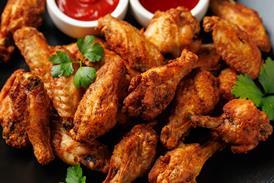





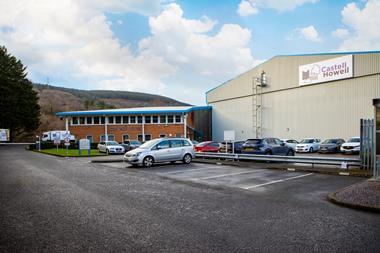
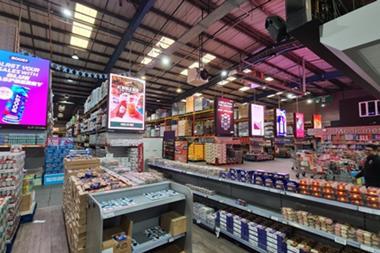

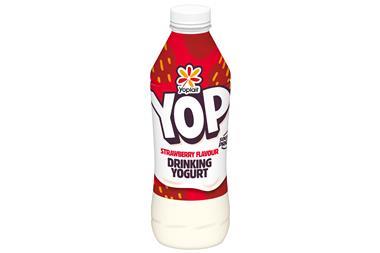
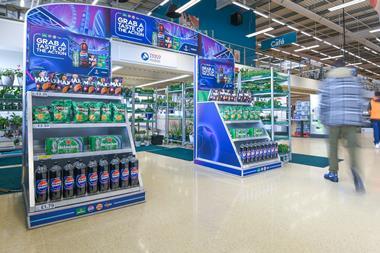
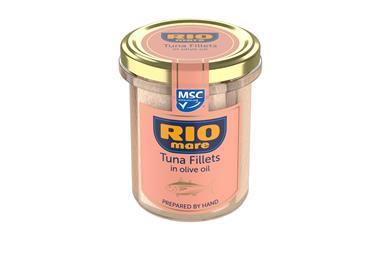
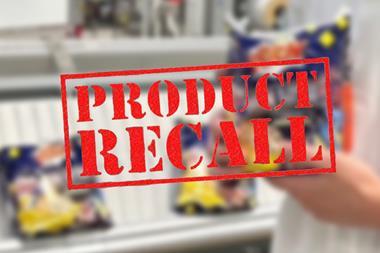

No comments yet